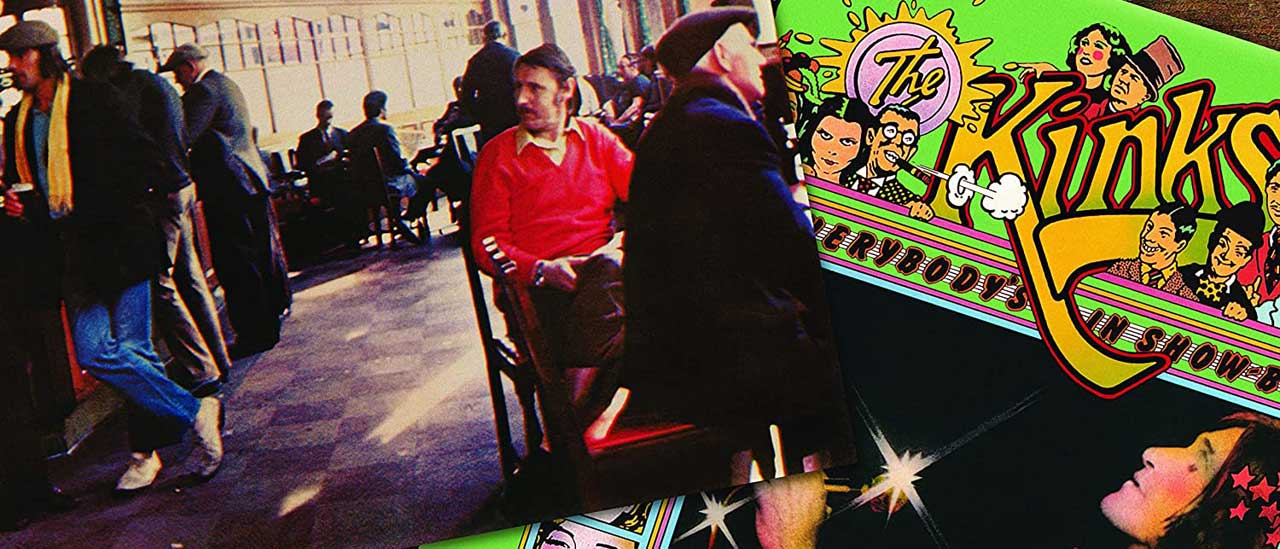You can trust Louder
Chronicling the songwriting genius of Ray Davies has never been easy, mainly because his glittering diamonds and pearls are often tarnished by various quirks and idiosyncrasies. And here we go again. Muswell Hillbillies (’71) is not a concept album, but a collection of downbeat songs mostly about urban isolation and cultural paranoia, delivered with The Kinks' typical joie de vivre and laced with Davies’s wit.
These range from Acute Schizophrenia Paranoia Blues (‘The milkman’s a spy and the grocer keeps on following me’), Alcohol (‘Oh demon alcohol, sad memories I cannot recall’), the anorexia-themed Skin And Bone (‘Her father and her mother and her sisters and brothers couldn’t see her when she walked by’).
It’s all summed up with delicious irony on Complicated Life: ‘Well I cut down women, I cut out booze/I stopped ironing my shirts, cleaning my shoes/I stopped going to work, stopped reading the news/I sit and twiddle my thumbs cos I got nothing to do.’
Unfortunately Davies’s decision to record the songs on old 60s and 50s equipment, ostensibly to give them a nostalgic feel, instead gives them a murky, uninviting veneer. The good news is that Davies has since found another set of master tapes, and the 2022 remix makes it much easier to hear the album’s pleasures.
The aforementioned songs all show up on the live disc of the double Everybody’s A Star, recorded at New York’s Carnegie Hall in 1972 with the Kinks in dynamic form; Ray’s clear vocals, brother Dave’s slashing guitar and Mick Avory’s rattling drums. The only dampener, at the end, is Ray’s ambivalence to his own heritage. Lola is reduced to less than two minutes of an audience singalong while the band appear to be tuning up, and there’s an inappropriate campness surrounding Til The End Of The Day.
The real problem with Everybody’s A Star is the first disc of studio-recorded songs, which are loosely themed around the tedium of life on the road, which is unlikely to resonate unless you are or have been a touring musician.
Ray’s wit struggles against a catalogue of whinges on titles like Here Comes Yet Another Day, Maximum Consumption, Unreal Reality, Sitting In My Hotel and Look A Little On The Sunnyside. The exception is the incandescent masterpiece Celluloid Heroes, a stroll down Hollywood Boulevard paying tribute to a host of film stars and what their fame means to Ray and the rest of us. It puts the rest of the record to shame.
Sign up below to get the latest from Classic Rock, plus exclusive special offers, direct to your inbox!
Hugh Fielder has been writing about music for 50 years. Actually 61 if you include the essay he wrote about the Rolling Stones in exchange for taking time off school to see them at the Ipswich Gaumont in 1964. He was news editor of Sounds magazine from 1975 to 1992 and editor of Tower Records Top magazine from 1992 to 2001. Since then he has been freelance. He has interviewed the great, the good and the not so good and written books about some of them. His favourite possession is a piece of columnar basalt he brought back from Iceland.


